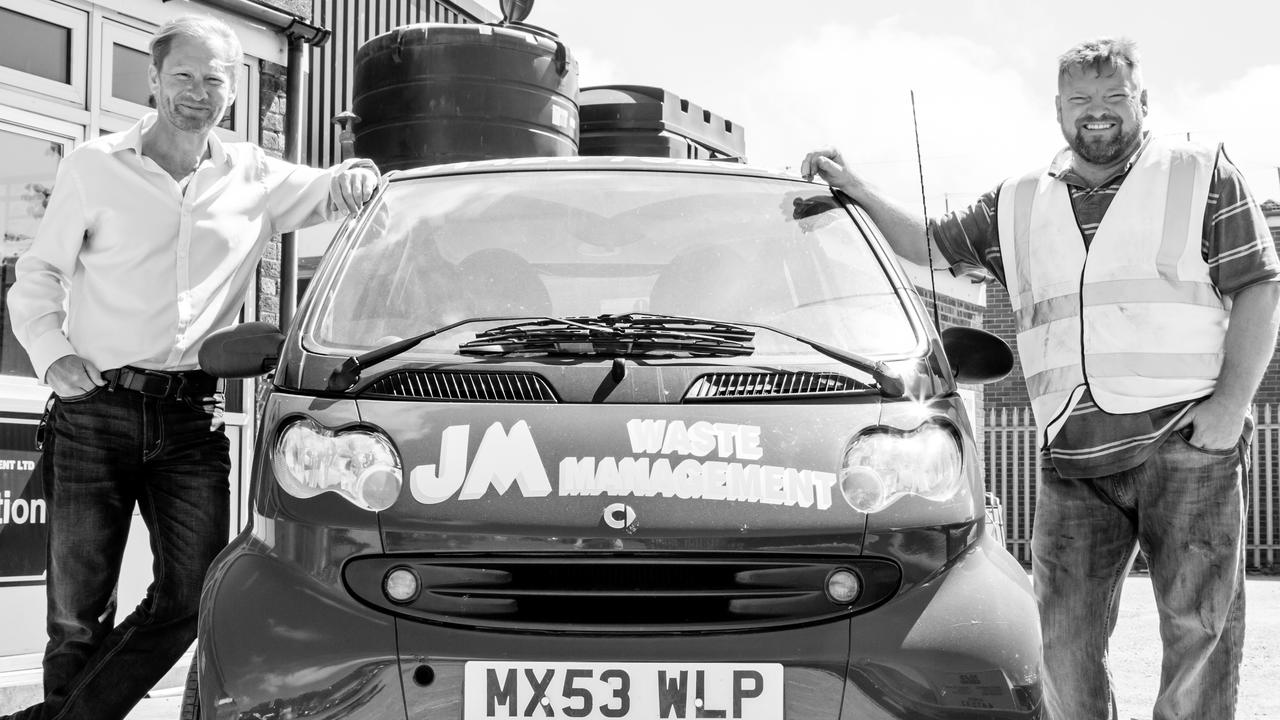The Story of Bin Man Dan

The Story of Bin Man Dan - finding the value of the model
Bin Man Dan is a great example from the early days of The Business Jet Engine®. It shows the clarity given by the model and why it became such a useful tool.
Dan Stone, owner and founder of Bin Man Dan, was a busy man. His business was waste management and he had four interrelated companies all of which were working flat out.
The first business dealt with household clearance and skip hire. The second, the waste transfer station, collected and sorted their own waste and also provided a dumping and/or sorting station for other local waste companies. A third company offered demolition and ground works. The fourth and final company collected commercial waste for recycling.
When Dan and I first met, business was going well but Dan knew he could achieve so much more.
With four busy companies and a lot of work going through them, it was hard to know what to focus on first. It was easy for Dan to become sidetracked into getting hands-on in any part of a business that was feeling the strain.
Like many business owners, it would have been easy for Dan to think that his way to grow was through more marketing, more sales. ‘Let us get more work’ is a common cry for growth. Many business gurus claim they can quadruple your business overnight. Their formula is usually more marketing, more sales. It becomes an easy trap to fall into and this could have looked like the answer for Dan.
Instead, Dan and I sat down and took an analytical look at each business. We used The Business Jet Engine® model and applied scores against every part of every business, after which, the picture was surprisingly clear. His best strategy was staring us in the face.
In each of his businesses, operations could be more efficient. We also found that overall the quality of staff had a low score, which is why Dan had to get involved. This left him lacking time to plan. The waste industry requires expensive plant and machinery, requiring significant amounts of capital expenditure to stay up-to-date and Dan was struggling to find time to create a plan for his much-wanted investments.
Having identified the main problem areas, we came up with a focused plan to move the business forward. Operations were the obvious part of the business to fix first. We identified the three most important operational aspects of each business to improve that year.
It was apparent that the operations relied on the quality of staff. The waste industry is a hands-on, dirty environment, at the low end of the pay scale so it can attract indifferent workers. In Dan's business, like many businesses with high staff turnover, people were hired on-the-fly as others moved on. The staff hired were often mates of existing staff who needed work in a hurry, so were similar characters, augmenting Dan’s problems.
We came up with a plan to be much more rigorous, only hiring A-players who were interested in remaining long-term, with proper training and the potential of a career path. With action plans in place for improving the quality of staff and efficiency of operations, we turned our attention to Dan to help him find time for proper planning outside the time spent in our sessions. We made sure that time was blocked out in his diary. We mapped out the mission-critical tasks that needed to be achieved in that timeframe, creating clear financial budgets and targets for each business, so that money could be put aside for capital expenditure.
These priorities became the successful focus for that year allowing Dan to take a significant step toward the larger, more profitable business that is JM Waste Management today.
